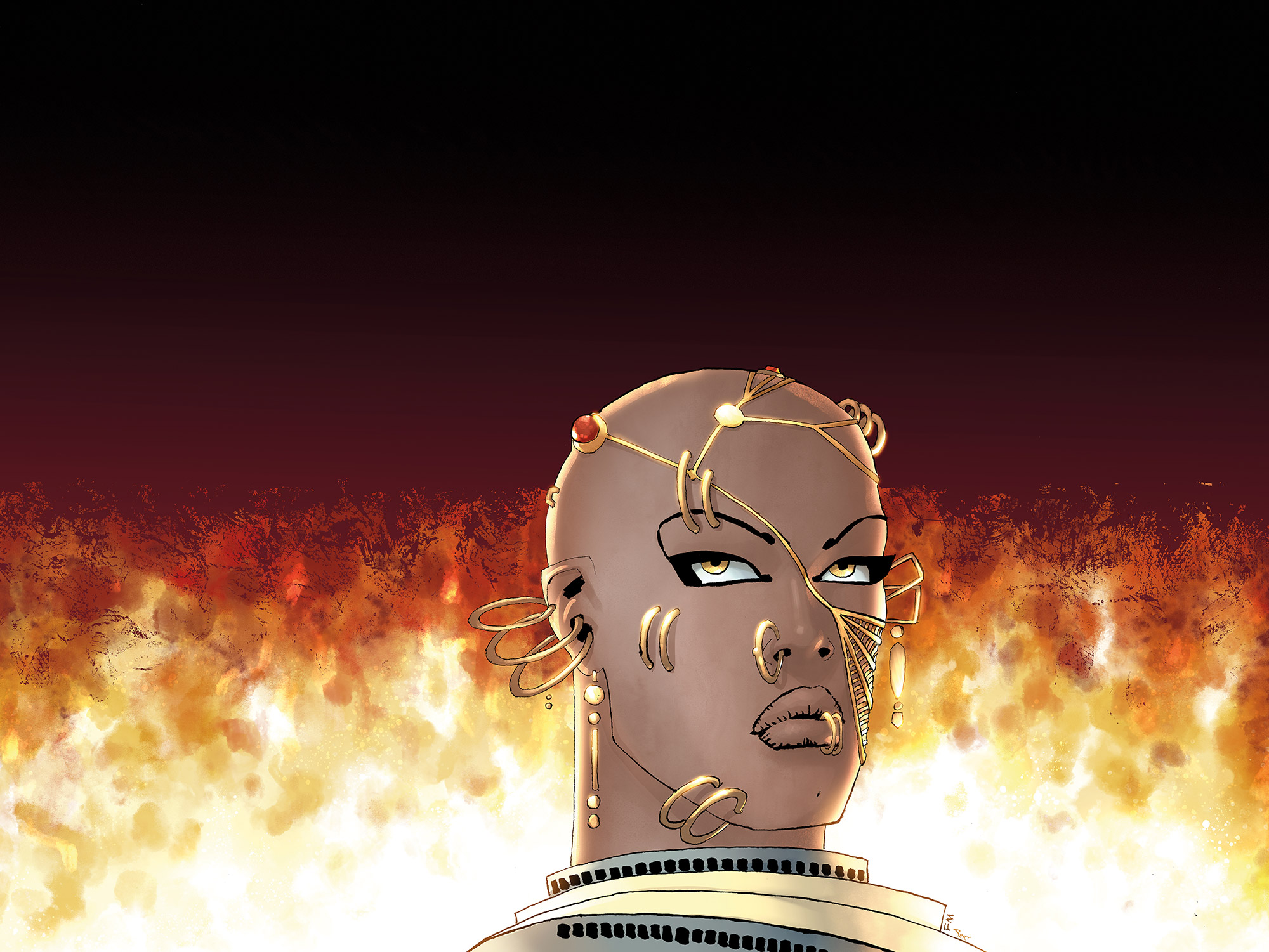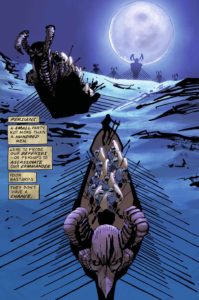
Xerxes: The Fall of the House of Darius and the Rise of Alexander #1
Story and Art: Frank Miller
Colors: Alex Sinclair
Logo Design: Steve Miller
Publisher: Dark Horse Comics
A review by Jim Allegro
 Frank Miller returns to the realm of historical fantasy with Xerxes: The Fall of the House of Darius and the Rise of Alexander. This five-comic miniseries from Dark Horse Comics is the prequel to 300, Miller’s 1998 award-winning fictional re-telling of the Battle of Thermopolyae. That battle was but one moment in a long and ranging war between Greece and Persia, which Miller introduces us to through the Persian monarch Xerxes, who seeks to expand his fallen father Darius’ empire by invading Greece circa 490 BCE. The effort will bring Xerxes face-to-face with the renowned Macedonian conqueror Alexander the Great.
Frank Miller returns to the realm of historical fantasy with Xerxes: The Fall of the House of Darius and the Rise of Alexander. This five-comic miniseries from Dark Horse Comics is the prequel to 300, Miller’s 1998 award-winning fictional re-telling of the Battle of Thermopolyae. That battle was but one moment in a long and ranging war between Greece and Persia, which Miller introduces us to through the Persian monarch Xerxes, who seeks to expand his fallen father Darius’ empire by invading Greece circa 490 BCE. The effort will bring Xerxes face-to-face with the renowned Macedonian conqueror Alexander the Great.
Never mind that Alexander and Xerxes lived more than a century apart, since, much like 300, this comic makes no pretension to historical accuracy. If it did, the story would not have seven-foot tall characters. Nor would it have the same stale ‘East/West’ divides that plagued 300. Xerxes #1 sets up a story that is very familiar to the western canon: a citizen-army puts down its ploughshares and picks up its swords to defend their way of life from invading mercenary-tyrants. These free and virtuous teachers, poets, and other ordinary Athenians (west) fend off the advances of a corrupt and professional Persian army (east).
 Miller’s art reinforces the epic nature of this imagined struggle to preserve democracy. Aerial views and over-sized panels vest the comic book with the same splendor that the artist sought to bestow upon the plight of outnumbered Spartans in the original graphic novels. And, the deliberately reductionist, if not crude, penciling style that has come to characterize much of Miller’s later work joins with Alex Sinclair’s pale moon-lit skies and murky waters to heighten the ferocity and grandeur of the battle at hand.
Miller’s art reinforces the epic nature of this imagined struggle to preserve democracy. Aerial views and over-sized panels vest the comic book with the same splendor that the artist sought to bestow upon the plight of outnumbered Spartans in the original graphic novels. And, the deliberately reductionist, if not crude, penciling style that has come to characterize much of Miller’s later work joins with Alex Sinclair’s pale moon-lit skies and murky waters to heighten the ferocity and grandeur of the battle at hand.
Verdict:
Pass! This writer has an abiding admiration for Frank Miller’s comics that goes back three decades, long before he understood words such as Orientalism. But, he frequently finds himself putting off that enthusiasm these days, since there is little that is truly interesting about Miller’s recent contribution to the comic world. The art is too familiar to be interesting anymore and the story is shaping up to be predictable. There are better comics out there right now. Skip It, or, if you must, wait for the trade volume.



